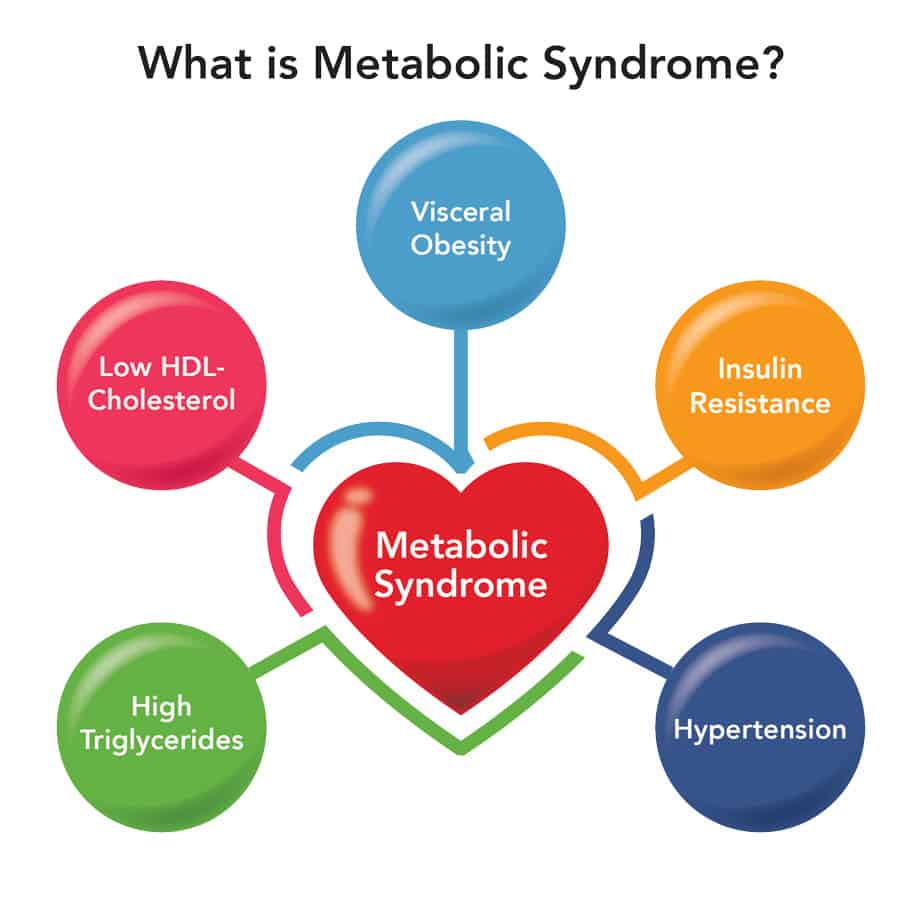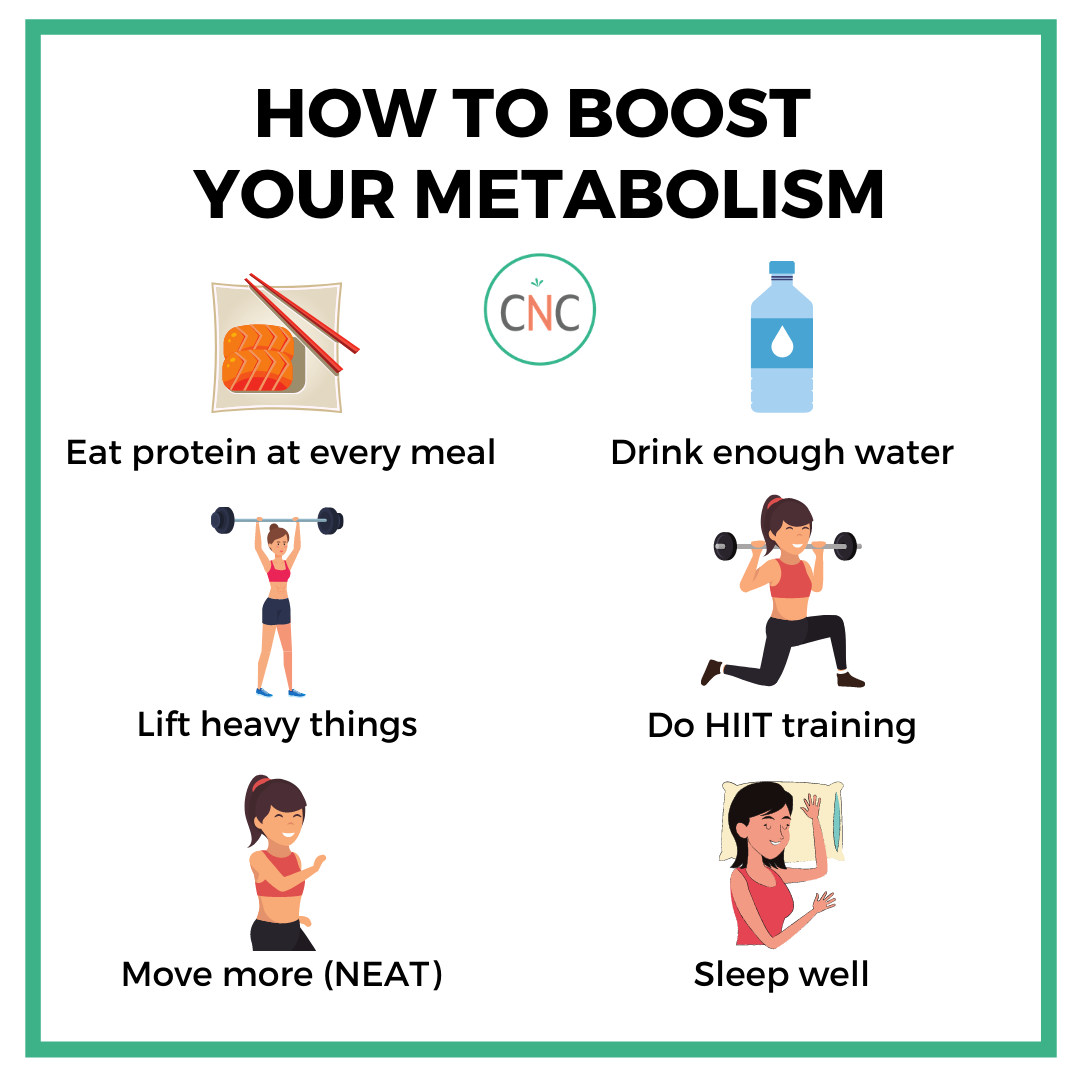Does An Increase In Metabolism Accelerate Weight Loss?
Houston Endocrine Center2022-10-05T20:17:09+00:00
Weight loss is not an easy task. One way to lose weight healthily is to increase metabolism with food and exercise. How does this increase in metabolism accelerate weight loss?
Metabolism

Metabolism is the rate at which your body converts food into energy. The faster your metabolism, the more calories you degrade while at rest. A higher metabolic rate means you can eat more food without gaining weight.
The most implied way to increase your metabolism is through exercise. Exercise increases muscle mass, which burns more calories than fat, even when the muscles rest. However, some foods can help boost your metabolism by increasing speed or efficiency.
These foods include:
-
Green tea:
Green tea contains caffeine and catechins (a type of antioxidant), both of which have increased metabolic rates.
-
Cinnamon:
Cinnamon improves insulin sensitivity (which helps regulate blood sugar levels) and decreases blood glucose levels after eating high carbohydrate meals—meaning it could help reduce post-meal fatigue and sleepiness! One cup per day has been shown to increase resting metabolic rate by 3-4%.
How Does Metabolism Work?

Metabolism is the sum of all chemical reactions that occur in the body. Everything you eat or drink, as well as the air you breathe, goes through metabolism.
Metabolism is a set of chemical processes that occur within living organisms to maintain life. Metabolism is affected by many factors, including genetics (our genes), age, gender, and weight.
The rate at which your body degrades calories (or energy) depends on how much lean muscle tissue you have on your body versus fat tissue. More muscle means more calories burned at rest – even while sleeping.
Muscle tissue also helps us build up our endurance when we exercise because it’s made up of fast-twitch fibers with a high glycolytic capacity which can rapidly use glucose for fuel during intense workouts like sprints or intervals but also when performing more sustained activities such as long-distance running where there’s not enough oxygen available for the slow twitch fibers that rely mainly on fat stores for fuel instead.
Why Is Metabolism Important For The Body?

Metabolism is the process of converting food into energy. The body uses this energy to perform all the functions within our bodies, from breathing to keeping our bodies warm.
The heart and lungs work harder when we exercise and eat more calories, so they need more energy to do their job well. Metabolism also helps maintain body temperature by keeping us warm or cool depending on the weather outside or inside your house or office building where you’re working/studying right now.
The bottom line is that if your metabolism isn’t working properly, it can cause many health problems, such as obesity which leads to type 2 diabetes which may lead to medical complications like blindness due to lack of proper treatment.
What Will Be The Result Of Improper Metabolism?

You might wonder, “If my metabolism is too low, what can I do about it?” The answer depends on the root cause of your problem.
If you have an underactive thyroid, your doctor may prescribe medication or radioactive iodine treatment to stimulate the organ and get it back on track. You may also want to try natural ways to boost your metabolism, like eating at least five servings of fruits and vegetables daily for their high fiber content.
In addition to being responsible for body weight regulation and energy production, metabolic rate affects our ability to maintain healthy body composition.
For example, if we carry around more muscle than fat, a desirable condition known as having a “good” muscle-to-fat ratio, it will take more calories to keep our bodies going each day.
That’s because muscular tissues require more oxygen when compared with fatty tissues due to their higher levels of activity; thus, they burn more calories even at rest.
Metabolism At A Higher Rate
Metabolism is the process by which your body converts food into energy. It keeps you alive and kicking and plays a crucial role in everything from maintaining body temperature to producing red blood cells.
But metabolism isn’t a fixed rate. When you eat more than normal or burn extra calories through exercise, your metabolism speeds up; eating less than usual or working out less often slows down.
A faster metabolism means that the food you ingest gets used more quickly by your body; a slower one means it takes longer for nutrients to be broken down into energy, which means weight loss would take longer.
Metabolism At A Lower Rate
A slow metabolism makes your body fat. It makes you unfit and decreases your energy level. Slow metabolism decreases stamina and may increase the risk of heart disease.
When you want to lose weight, you should increase your metabolism instead of consuming pills. If you have a slow metabolism and want to speed up its process, avoid eating too much food at night because it will make you lose weight in no time.

Eating late at night increases blood sugar levels which results in higher insulin production, thus slowing down the burning of fats by decreasing their digested rate, which leads to accumulation of fats within the body tissues leading to obesity or an overweight condition known medically as Metabolic Syndrome (MetS).
What Can We Do To Improve Metabolism Rate?

If you want to accelerate your weight loss, here are some things you can do:
-
Eat healthy foods.
The right type of diet is important for accelerating metabolism. A healthy and balanced diet helps regulate hormones, which regulate appetite and energy levels, leading to more consistent weight loss results.
-
Exercise regularly.
Exercise is a crucial part of any weight loss program as it helps build muscle mass, which burns more calories than fat, and fastens the metabolic rate for up to 48 hours after an intense workout session (1).
-
Sleep well.
Getting enough sleep can help keep your metabolism high at night so that you burn more calories when resting instead of burning fewer calories during your sleep phase.
In addition, good quality sleep also helps regulate hormones related to hunger, such as ghrelin, to reduce appetite after eating little or nothing before going into deep sleep compared with those who slept less than 4 hours per night over several nights without eating anything beforehand.
What Is The Result Of An Increased Metabolism Rate?
If you’re wondering how to lose weight, one of the easiest ways to do it is by increasing your body’s metabolism. The more quickly your metabolism works, the more calories you burn and the more weight you lose. But what is a fast metabolism exactly?
To get a clear sense of what’s going on inside our bodies when we eat less food and exercise more than usual, let’s take a look at what happens when we increase our metabolism:
- Our bodies store less fat
- We feel more energetic
- Our hearts and lungs work more efficiently
- We burn calories faster
What Is The Outcome Of Decreased Metabolism Rate?
In case of decreased metabolic rate, your body will be more prone to weight gain. Your body would not be able to burn the stored fat for energy.
In fact, instead of burning the stored fat, it will start storing more fat in the body because it doesn’t have any other source of energy available to it. So, as a result, you gain weight rapidly, and so does your waistline.
The decreased metabolism also results in insufficient energy required by your body to maintain its normal functions.
The proper functioning of organs in case they require a higher level of activity or even simple routine activities such as walking or talking require some energy which is not provided by a low metabolism rate person leading them to feel tired all the time.
Conclusion
I hope the answer to this question is yes. I believe there is a relationship between increasing your metabolism and losing weight, but it’s not as simple as taking pills or drinking shakes. If you want to boost your metabolism, you need to exercise more often than usual, for about 30 minutes daily.
